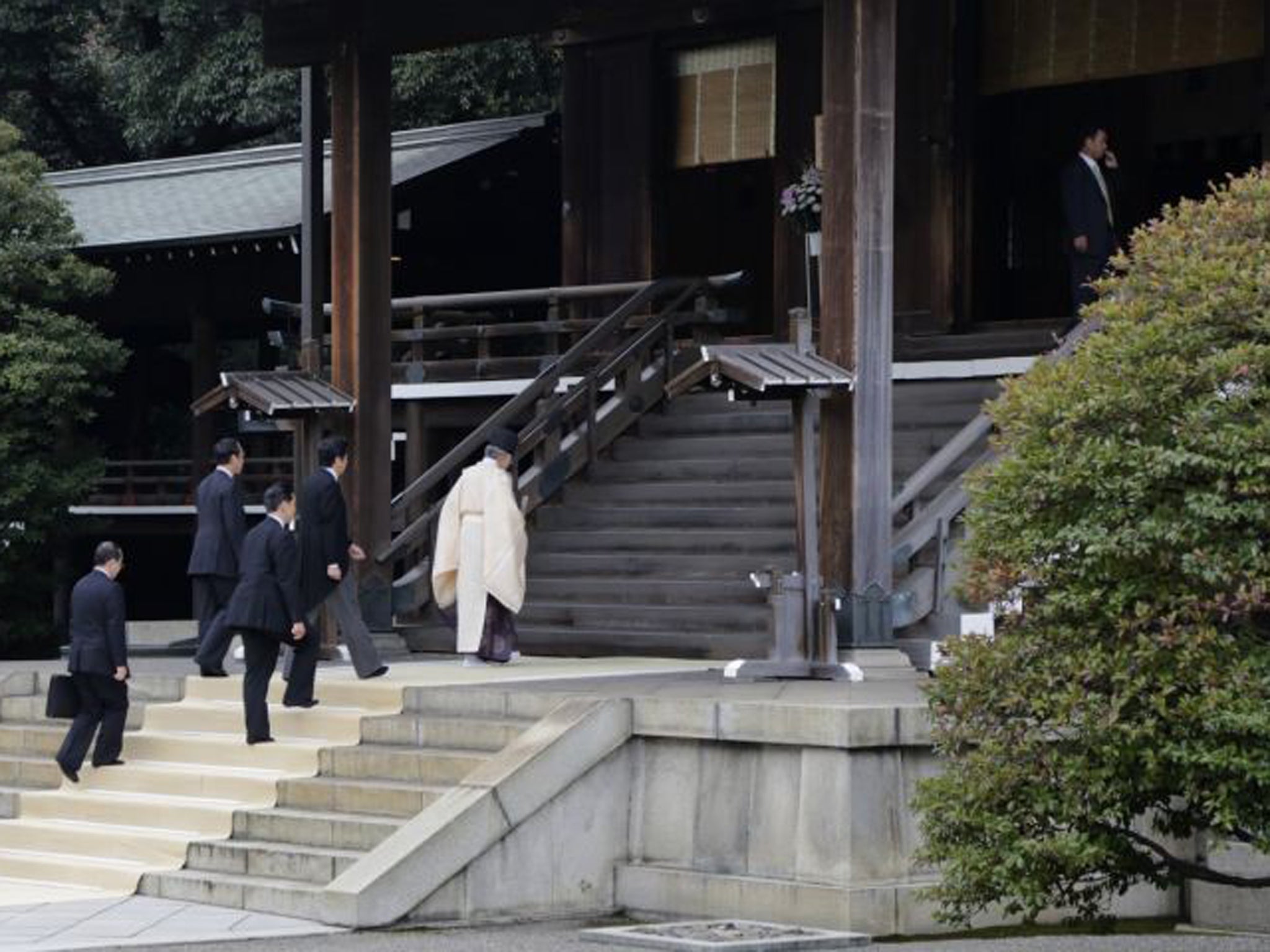South Korea and China angered by Japanese PM Shinzo Abe's visit to controversial shrine to war dead
Neighbouring countries unhappy over public 'celebration' of Japan's attacks

Your support helps us to tell the story
From reproductive rights to climate change to Big Tech, The Independent is on the ground when the story is developing. Whether it's investigating the financials of Elon Musk's pro-Trump PAC or producing our latest documentary, 'The A Word', which shines a light on the American women fighting for reproductive rights, we know how important it is to parse out the facts from the messaging.
At such a critical moment in US history, we need reporters on the ground. Your donation allows us to keep sending journalists to speak to both sides of the story.
The Independent is trusted by Americans across the entire political spectrum. And unlike many other quality news outlets, we choose not to lock Americans out of our reporting and analysis with paywalls. We believe quality journalism should be available to everyone, paid for by those who can afford it.
Your support makes all the difference.The Japanese Prime Minister Shinzo Abe has visited a shrine seen by critics as a symbol of Tokyo’s wartime aggression, infuriating China and South Korea and prompting concern from the United States about deteriorating ties between the North Asian neighbours.
China and South Korea have repeatedly expressed anger in the past over Japanese politicians’ visits to Yasukuni Shrine, where Japanese leaders convicted as war criminals by an Allied tribunal after the Second World War are honoured along with those who died in battle.
The two countries have been especially touchy about visits to the shrine by serving Japanese prime ministers, and Mr Abe is the first leader in office to pay homage at Yasukuni in the past seven years.
Business ties between China and Japan have improved after a row last year over tiny East China Sea islands controlled by Japan but also claimed by China. But worries are growing that an unintended incident between Japanese and Chinese aircraft and ships playing cat-and-mouse near the disputed isles could escalate into a military clash.
Read more:
Mr Abe, a conservative who took office for a second term one year ago, said he did not intend to hurt feelings in neighbouring nations.
“There is criticism based on the misconception that this is an act to worship war criminals, but I visited Yasukuni Shrine to report to the souls of the war dead on the progress made this year and to convey my resolve that people never again suffer the horrors of war,” he told reporters after the visit.
Television carried live video of his motorcade making its way to the shrine, built in 1896 by Emperor Meiji to enshrine war dead. Yasukuni played a key role in the wartime state Shinto religion which mobilised the population to fight in the name of a divine emperor. Mr Abe bowed at the shrine before following a Shinto priest into an inner sanctum.
Stressing that it was natural for a nation’s leader to pay respect to those who died for their country, Mr Abe said he shared the view of past Japanese leaders that ties with China and South Korea were important and that to make them firm was in Japan’s national interests – and said that he would like to explain that, if given the opportunity.
Tokyo’s relations with Beijing and Seoul are already strained by territorial rows and disputes stemming from Japan’s wartime occupation of large parts of China and its 1910-1945 colonisation of the Korean peninsula. China’s Foreign Minister Wang Yi said Mr Abe’s action had pushed Japan in an “extremely dangerous” direction.
Paying respects at the shrine is part of Mr Abe’s conservative agenda to restore Japan’s pride in its past and recast its wartime history with a less apologetic tone. He also wants to ease the restraints of Japan’s post-Second World War pacifist constitution on the military.
No serving Japanese prime minister has visited the shrine since Junichiro Koizumi’s annual pilgrimages to Yasukuni during his 2001-2006 tenure.
REUTERS
Join our commenting forum
Join thought-provoking conversations, follow other Independent readers and see their replies
Comments